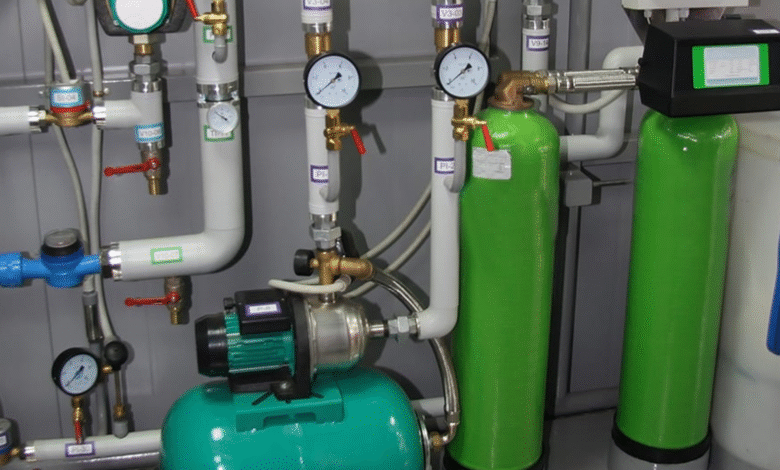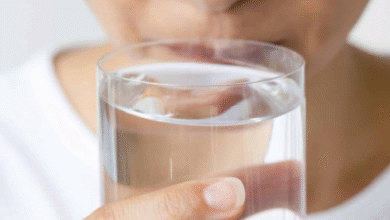Why More UK Homes Are Turning to Alkaline Water Filters

Walk into any kitchen showroom these days and you’ll notice something different: the humble tap has become a centrepiece. It’s no longer just about hot and cold; now, people are talking about filtered water, mineral balance, and even pH levels. Health trends often swing in circles, but one that’s been steadily growing in the UK is the rise of alkaline water filters. And honestly, it’s not hard to see why.
We’re a nation that loves its tea, but also increasingly conscious about health, hydration, and what goes into our bodies. For some, alkaline water is seen as smoother, fresher, maybe even a little kinder to the stomach. For others, it’s more about investing in better home living and leaving behind the endless plastic bottles. Whatever the reason, this shift feels more than just another fad.
What Makes Alkaline Water So Talked About?
At its core, alkaline water has a higher pH than regular tap water. The claim is that this makes it less acidic, potentially neutralising acid in the bloodstream and providing a host of wellness benefits. Some people swear it helps with energy, digestion, or simply feeling more refreshed.
Now, the science is still debated. You’ll find medical professionals with mixed opinions. But here’s the thing: sometimes it’s not just about lab results. It’s about how people feel in their day-to-day lives. And in the UK, where water quality varies wildly from Manchester to Milton Keynes, the idea of upgrading your tap to produce consistently cleaner, fresher water has real appeal.
That’s where the decision to install alkaline water filter systems comes in. It’s about having control, making your kitchen water feel a little more spa-like, without needing to cart bottles home from the supermarket every week.
Installation Isn’t as Daunting as You Think
A lot of homeowners imagine new plumbing jobs as messy, expensive, or disruptive. But truthfully, most alkaline filter setups are straightforward. They’re often designed to work alongside existing plumbing, tucked neatly under the sink, connected directly to the tap.
For those who like things neat and tidy, you’ll find models that come with their own dedicated spout, so your filtered water is completely separate from your standard tap. And if DIY isn’t your thing, plumbers across the UK are increasingly familiar with these systems. It’s not some rare, niche product anymore — it’s becoming mainstream.
That’s why companies now promote hydrogen alkaline filter installation as a service package. The hydrogen element, in particular, is interesting. It’s not just about pH levels but about adding antioxidants into the mix, which some believe help with reducing oxidative stress. Whether or not you buy into all the wellness talk, it’s a clever bit of engineering that sets these filters apart.
Everyday Living with an Alkaline Ionized Filter
Imagine this: you’ve just finished a long day at work, maybe stuck on the M25, maybe battling through packed trains into London. You get home, fill a glass from the tap, and instead of the slightly metallic taste you’ve grown used to, you get crisp, light-tasting water. No chalky residue at the bottom of the kettle, no odd aftertaste. Just clean, smooth hydration.
That’s the everyday reality of an alkaline ionized water filter. It’s not just about theory or science; it’s about the simple joy of drinking water you actually want to drink. And the knock-on effects matter too:
- Tea and coffee often taste better. (Yes, your morning cuppa can be noticeably smoother.)
- Cooking pasta, rice, or even soups with filtered water changes the flavour slightly — cleaner, more vibrant.
- Appliances like kettles and coffee machines last longer without the constant battle against limescale.
So, while some might see it as a luxury, many UK households are treating it as a sensible upgrade — a bit like double-glazing or a decent boiler. Something that makes life more comfortable, saves hassle, and pays off quietly in the background.
The Bigger Picture: Health Meets Lifestyle
Of course, alkaline water isn’t going to magically solve all health concerns. But as part of a balanced lifestyle, it can play a role in encouraging better hydration. Let’s face it: most of us don’t drink enough water. If upgrading your filter means you reach for the tap more often, that’s already a win.
There’s also the environmental factor. UK households are cutting down on single-use plastics, and bottled water sales are often criticised for waste. With a home filter, you’re reducing plastic, saving money in the long run, and keeping life a bit simpler.
The shift feels very British in its own way. We don’t always shout about health trends, but we do like practical solutions that quietly improve everyday living.
Should You Make the Switch?
Here’s the honest take: if you’re happy with your water, don’t feel pressured. But if you’ve been frustrated with hard water, strange tastes, or you just fancy an upgrade that supports a healthier routine, it might be worth exploring.
For many, the decision comes down to value. A filter isn’t a huge expense compared to other household improvements, and once installed, maintenance is minimal. A cartridge change here and there, maybe once or twice a year depending on usage — nothing drastic.
And unlike gym memberships that go unused or fad gadgets that gather dust, a water filter is something you’ll benefit from every single day. It’s practical wellness, not performative wellness.
Final Thoughts
The conversation about alkaline water will keep evolving — between wellness bloggers, scientists, and everyday families just looking for better-tasting water. But in kitchens up and down the UK, something’s already changing.
Choosing to install one of these systems isn’t about following a trend blindly. It’s about comfort, taste, and the small rituals of daily life that quietly add up to something bigger.
At the end of the day, it’s simple: water is life. And if you can make the water in your own home a little better — a little fresher, a little kinder — why wouldn’t you?




